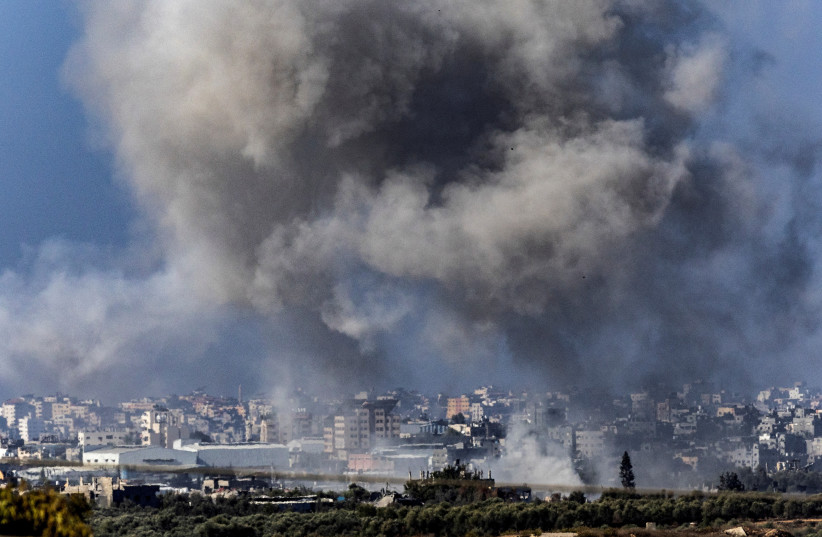It has been over a month since October 7, and Israel is currently engaged in a war on two fronts – in Gaza and, to a lesser extent, in the North. But if the government isn’t careful, the country may yet end up with a third.
While Israel has been fighting in Gaza, things in the West Bank have not quieted down. In fact, they have only gotten more intense, buried under all the other news.
Israeli communities in Judea and Samaria are strong, but they are traumatized, and the threats to their lives have not decreased. Palestinian attacks continue on a daily basis, and a shooting attack in the northern West Bank two weeks ago killed 29-year-old IDF Sgt.-Maj. (res.) Elhanan Ariel Klein, a married father of three.
At the same time, a spokesperson for the Office of the UN High Commissioner for Human Rights (OHCHR) said last week that at least 132 Palestinians have been killed in the West Bank since October 7, mostly in clashes with Israeli security forces, which has been engaged in extensive counterterrorism operations throughout the territory.
According to the United Nations Office for the Coordination of Humanitarian Affairs (OCHA), eight of the 132 were killed by Israeli settlers.

Those eight deaths should be of concern to every Israeli. Let us not forget that this is nine months after the rampage in Huwara, and five after Turmus Ayya. According to the NGO Yesh Din, there have been 100 incidents of violence in over 60 Palestinian towns since October 7.
Not only is Jewish terror – a term used by the country’s top defense chiefs to describe the phenomenon – simply wrong, and not only does it have no place in the Jewish state, it also tars and delegitimizes Jewish residents of Judea and Samaria, the vast majority of whom are law-abiding citizens.
Why bring this up now, when we are snowed in with a brutal, ongoing war?
US support since October 7 has been remarkable. Israelis should be – and are – deeply grateful for America’s steadfast backing, which has taken a variety of forms, both public and otherwise. But differences between the two countries lurk just below the surface and are likely to bubble up once the dust settles.
One of the key areas of conflict between the US and Israel centers on the possibility of a two-state solution and the future relationship between Israel and the Palestinians.
Blinken to Abbas
US Secretary of State Antony Blinken reiterated to Palestinian Authority President Mahmoud Abbas last week that the US “remains committed to advancing equal measures of dignity and security for Palestinians and Israelis alike,” according to a State Department readout.
According to the White House, US President Joe Biden “discussed the situation in the West Bank” and “the need to hold extremist settlers accountable for violent acts” against Palestinians during a call last week with Prime Minister Benjamin Netanyahu.
On Thursday, Netanyahu issued a condemnation of settler violence. “I condemn this, and we will act against it,” he said. “There is a tiny handful of people who do not represent this public and that take the law into their own hands. It does not represent the public here.”
Important as the prime minister’s condemnation is, action is needed.
As they continue to act resolutely against deadly Palestinian terror, Israel’s security forces must also do whatever they can to tackle Jewish terror at its core. Instigators must be identified and brought in for questioning, and perpetrators must be thwarted, arrested, and brought to trial.
Community leaders must play a role, as well, making abundantly clear that violence targeting innocent Palestinians will not be tolerated. While the Palestinian Authority is deeply flawed and makes a highly imperfect partner for a host of well-known reasons, its security forces play an indisputable role in maintaining calm in the West Bank. Israel should engage with the PA and see what can be done to lower tensions.
Last week, senior UN official Philippe Lazzarini said that the situation in the West Bank “is boiling.” Israel should do whatever it can to prevent it from boiling over.
